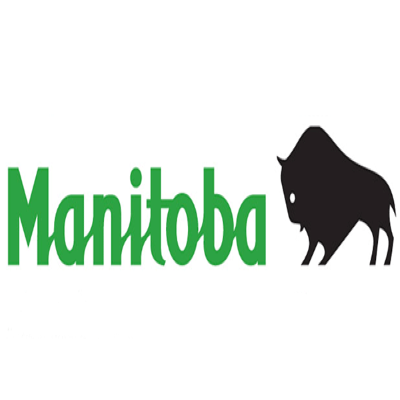canada
Type of resources
Available actions
Topics
Keywords
Contact for the resource
Provided by
Years
Formats
Representation types
Update frequencies
status
Service types
-
RDCK Overview map service
-

Canadas Managed Forests 2020 Vector Tile Layer
-

Polygon feature layer of Manitoba's economic regions This feature layer depicts the boundaries of economic regions in Manitoba. There are eight regions in Manitoba, defined by Statistics Canada. Fields included [Alias (Field Name): Field description] Economic Region (Economic_Region): The name of the economic region For more information, see Regional Economic Profiles on the Manitoba government website.FF
-
Population density in Canada based on the 2006 and 2011 census data at three levels of geography: census division (CD) (1:5,000,001 and over), census sub-division (CSD) (1:5,000,000 to 1:288,897) and dissemination areas (DA) (1:288,897 and under). Population density is the number of people per square kilometer. Population density change measures the rate of change calculated by the difference in total population density values for each area between 2006 and 2011, divided by the total population density of 2006. The CD and CSD boundaries are based on 2011 data. The 2006 population figures have been adjusted accordingly. The DA boundaries are based on 2006 data. All areas with no data are indicated with a value of -999.
-

The THERMAL SPRINGS layer represents a compilation of available data from thermal springs throughout the Yukon and near the Yukon border. Spring data points include information on the name of the thermal springs, the measured temperature, the water chemistry, geothermometer results and references where more data may be found.
-

Yukon Oil and Gas Exploration Regions. Based on the Resource Assessments completed and the 2003 Yukon Digital Bedrock Geology. Created by Oil and Gas Management Branch under guidance from Yukon Geological Survey. Distributed from [GeoYukon](https://yukon.ca/geoyukon) by the [Government of Yukon](https://yukon.ca/maps) . Discover more digital map data and interactive maps from Yukon's digital map data collection. For more information: [geomatics.help@yukon.ca](mailto:geomatics.help@yukon.ca)
-

Core viewing and rock sawing facilities are available Monday - Friday, 8:30 a.m. to 4:30 p.m. To see information on the status of our drill core program and download forms for accessing the collection, visit [https://yukon.ca/en/yukon-geological-survey-core-library](https://yukon.ca/en/yukon-geological-survey-core-library) . To reserve the core library facilities, please contact [YGS-Minerals@yukon.ca](mailto:YGS-Minerals@yukon.ca) For comments or feedback on the dataset, please contact [ygstech@yukon.ca](mailto:ygstech@yukon.ca) Distributed from [GeoYukon](https://yukon.ca/geoyukon) by the [Government of Yukon](https://yukon.ca/maps) . Discover more digital map data and interactive maps from Yukon's digital map data collection. For more information: [geomatics.help@yukon.ca](mailto:geomatics.help@yukon.ca)
-

Registered Trapping Concessions (RTCs) are legal boundaries that define an area where the holder of the concession has the exclusive right to trap furbearing animals. Because trapping is done primarily along waterways, RTCs are often defined by watersheds, using height of land (ridges and mountain peaks) as their boundaries. This is the opposite of GMAs which are defined by mountains. Sometimes RTCs are grouped together to form a Group Trapping Concession (in which groups of individual share the right to trap). This may or may not involve the elimination of the component RTC boundaries. The Yukon has 360 RTCs and 13 Group Trapping Concessions. Only Kluane National Park, Kluane Wildlife Sanctuary, and Ddhaw Ghro Habitat Protection are are not covered by RTCs. This data was built using the 1:250,000 National Topographic Data Base (NTDB) as the digitizing base. Distributed from [GeoYukon](https://yukon.ca/geoyukon) by the [Government of Yukon](https://yukon.ca/maps) . Discover more digital map data and interactive maps from Yukon's digital map data collection. For more information: [geomatics.help@yukon.ca](mailto:geomatics.help@yukon.ca)
-

This dataset provides the location of Yukon's hospitals and health centres. The data also includes contact information and general information about each facility. Distributed from GeoYukon by the Government of Yukon. Discover more digital map data and interactive maps from Yukon's digital map data collection.For more information: [geomatics.help@yukon.ca](mailto:%20geomatics.help@yukon.ca)
-

Roadside barriers are physical obstructions to retain vehicles that have left the travelling lane on the road. In the Yukon, the most common barriers are W-beam (also known as guiderail) and concrete roadside barrier (CRB, also known as jersey barrier). Distributed from [GeoYukon](https://yukon.ca/geoyukon) by the [Government of Yukon](https://yukon.ca/maps) . Discover more digital map data and interactive maps from Yukon's digital map data collection. For more information: [geomatics.help@yukon.ca](mailto:geomatics.help@yukon.ca)
 Arctic SDI catalogue
Arctic SDI catalogue